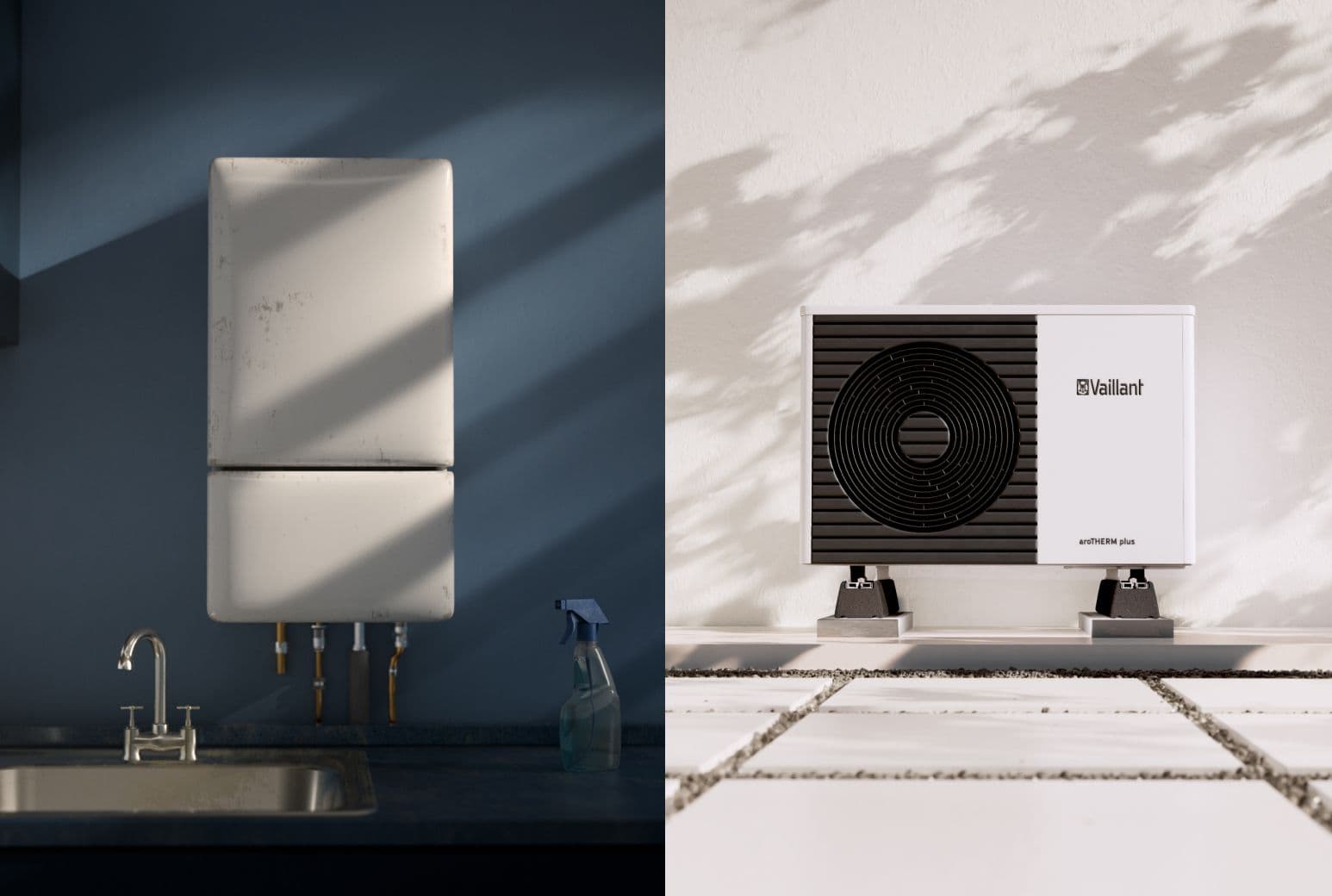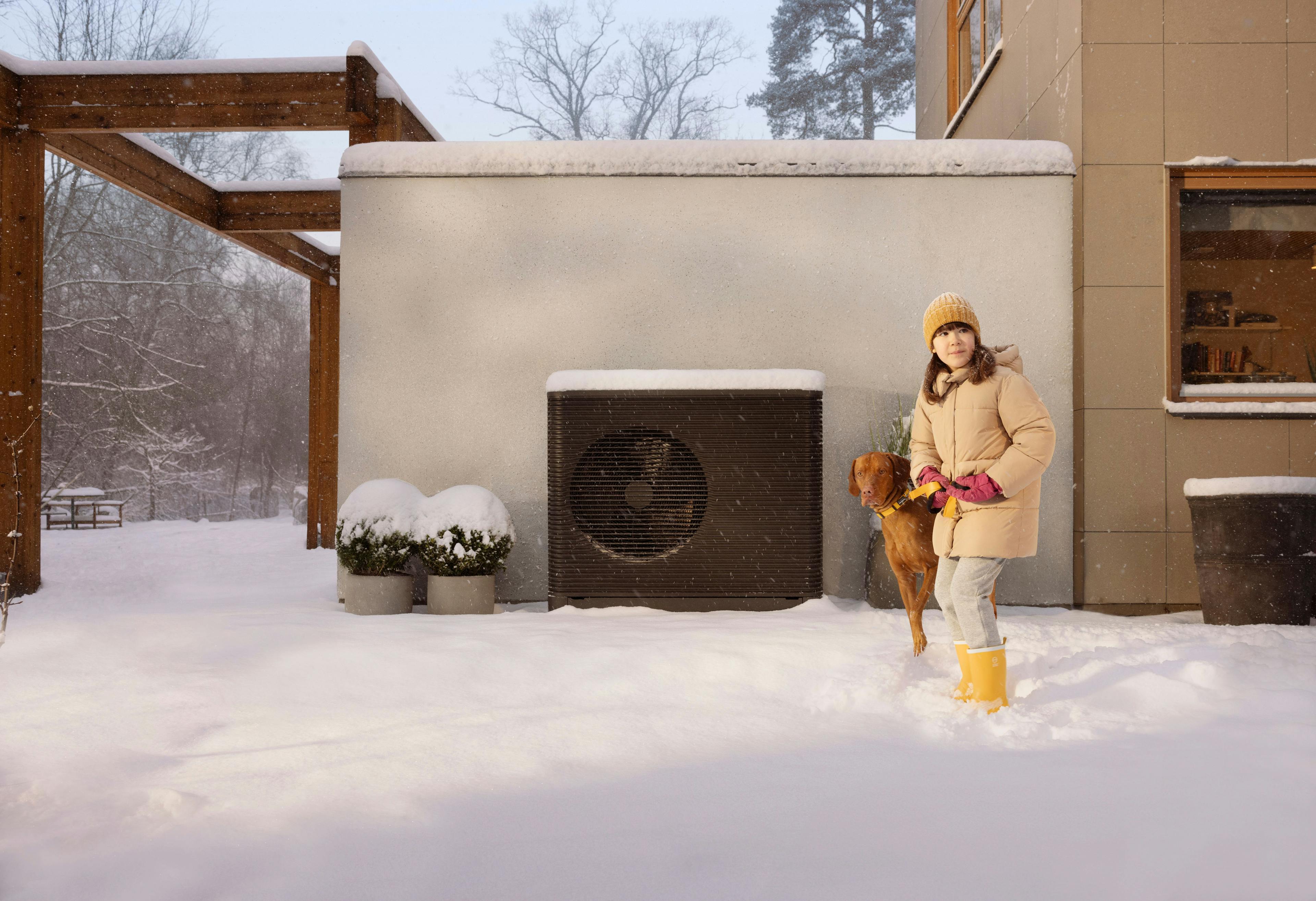Saving redundant gas boilers from the scrap heap: Aira meets The Salvage Sister
Today, residential heating is Europe’s third-largest emitter of CO₂ and is responsible for 16% of the UK’s CO₂ emissions…
Read more
Content Writer : Carl Robinson
Source Article : https://www.airahome.com/en-gb/blog/air-source-heat-pump-pros-cons
Air source heat pumps are great news for your gas bills and the environment. Read on for the top benefits of switching to this lean, green, house-heating machine.
Heat pumps can reach 400% efficiency, meaning that for every unit of energy they use, they produce 4 units of heat – which is about four times more efficient than a traditional gas boiler. This means they use less energy, which means lower household bills and much less impact on the environment.
It may surprise you that even in the harshest of winters, an air source heat pump’s efficiency is still strong. Air source heat pumps can still extract heat from the air below –20 degrees Celsius.

An air source heat pump is a great way to lower your monthly household costs. There’s no longer any need to fiddle with the thermostat, either. Because of their high efficiency, air source heat pumps don’t need as much energy as gas boilers to heat your home, making the switch to a heat pump cost-effective. Most households can expect to make a saving of around £400 on their energy bills each year. While the upfront cost of an air source heat pump can be off-putting at first, you can benefit from saving £7500 on your heat pump with government grants.
The impact of heat pumps on the environment is overwhelmingly positive. As 85% of British homes still rely on traditional heating systems like boilers for warmth, a shocking 17% of the UK’s carbon emissions come from residential heating. One of the biggest pros of air pumps is their comparatively low carbon footprint, as they use fresh air from outside to produce heat. By switching to a heat pump, your house could cut down its carbon emissions by 75% per year. That’s a bigger saving than selling your diesel car. Better still, by powering your home’s electricity supply with solar panels, heat pumps can become a fully carbon-neutral heating system.

Compared to gas boilers, heat pumps have a much longer lifespan. A correctly installed heat pump can last for 20 years whereas gas boilers usually last only 10. When you switch to green heating with Aira, you benefit from the Aira Comfort Guarantee, which includes parts and necessary maintenance if the unexpected happens. Take that, boilers.
Not keen on a low rumbling or weird clunks in the night? Leave ‘house noises’ in the past. Air pumps have been typecast as noisy or loud, but placed outside with correct installation, they should make as little noise as a fridge.
Air to water heat pumps provide your home with hot water for everyday use and heat your home with your existing network of pipes and radiators – all powered by the fresh air from outside, and with no need for a carbon-guzzling boiler.
When installing an air source heat pump in your home, it’s worth keeping in mind some key factors that can dissuade some homeowners from making the switch, and what to do about them so you can enjoy clean, green energy in your home.
While most houses are ready to install heat pumps from day 1, heat pumps are most efficient when heating your home with lower temperature water than a boiler – but that doesn’t mean a colder home. Your home’s current central heating system and radiators will likely be using higher temperatures than a heat pump system, but all you may need to do to make the most of the heat pump is simply replace some old radiators to feature a larger surface area.
If your home is well-insulated, with little or no cold air drafts, you don’t need to worry – heat pumps, like all heating sources, work best with a home that keeps the hot air in, and the cold air out. For good results from a heat pump, ensure you’ve got at least double glazing, and that your doors and attic are well-insulated. Adding proper insulation to your loft and walls will only help reduce your energy bills even further.

A heat pump will take up a bit more space than your average gas boiler, but you’d be surprised at how little you’ll notice them once they’re installed.
Outside Space: You’ll need a small amount of room to mount your heat pump outdoor unit. This is rarely an issue, as it’s about the size of a fridge, and the heat pump can fit snugly alongside your home.
Inside Space: The indoor unit and buffer tank will simply fit where your boiler used to be – or another closet, hidden from view.